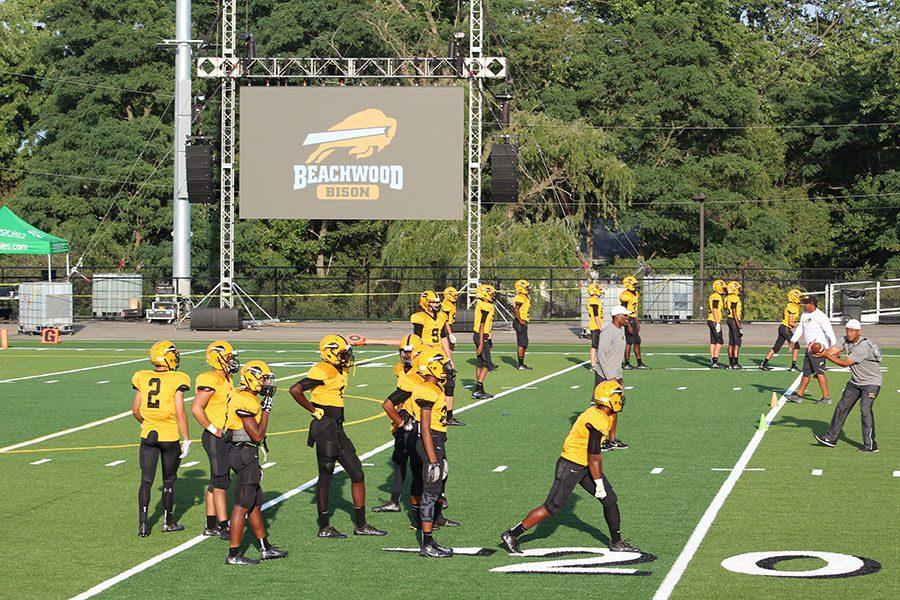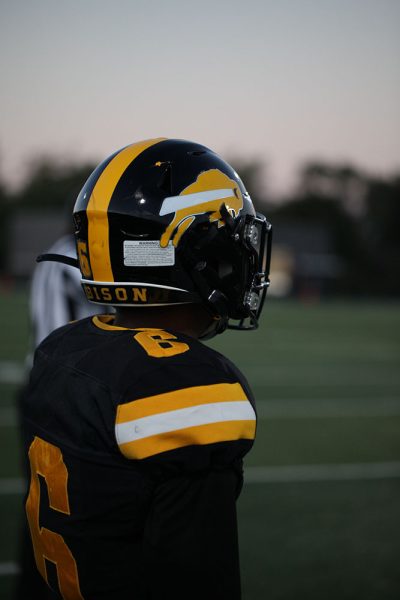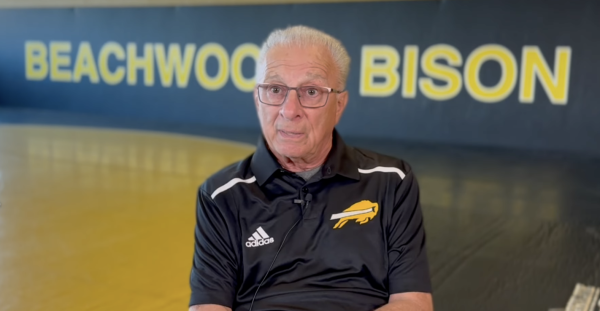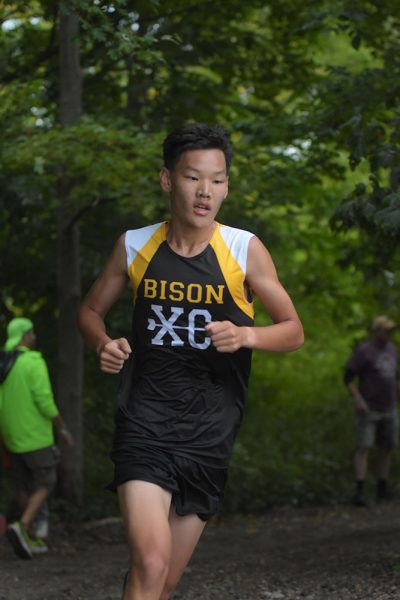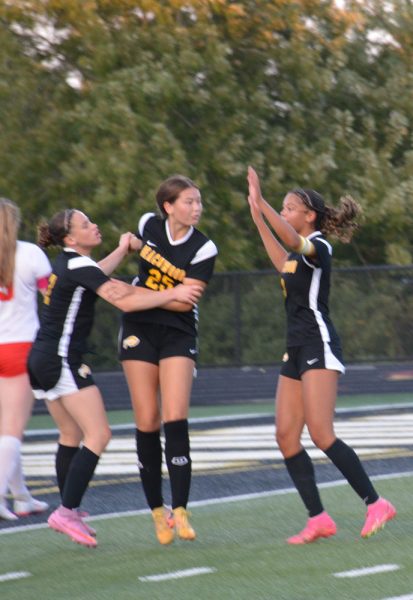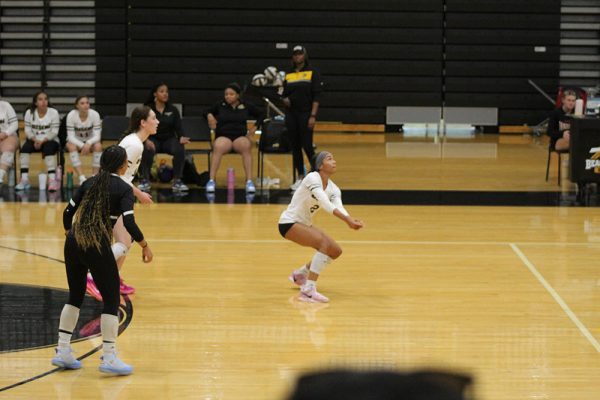More Than Turf and Lights
The New Stadium Boasts Quite a Few New State-of-the-Art Features
Allan D. McCullough Field, home of the Bison football team, has a new look this fall.
As of Sept. 16, grass has given way to synthetic turf and afternoon games have been replaced with night games under the lights.
But this stadium has more features than the turf and the lights.
The head architect for the project is Ryan Schmit from ThenDesign Architecture, a firm based in Willoughby that has experience designing sports facilities.
The city of Beachwood approved 90 feet (27.4 meters) LED lights in order to cut down on light pollution.
“The higher the pole is, the more the lights can turn down, which puts the light down onto the field, as opposed to when they get lower, the light projects out,” architect Ryan Schmit told the Cleveland Jewish News.
Athletic Director Ryan Peters explained that these are state-of-the-art lights.
“There is little to no spillage, so the light doesn’t travel to nearby homes,” Peters said.
New stadium speakers have been installed on the lights, which are better positioned for louder projection.
One of the most anticipated aspects of the new stadium is the turf.
“When the workers were putting down the turf, they told me we had the softest field they have ever seen, meaning we have the best place for a football field,” Peters said.
“Instead of having the standard shredded tire rubber-based dirt, we have this biodegradable stuff called Virturf,” Peters explained.
Viroturf is composed of little green particles scattered over the field that mimics dirt. The purpose is to create a soft surface. These are more eco-friendly rather than the shredded tires. Viroturf particles are smaller and will decompose more quickly.
Another reason to have Viroturf rather than a rubber substrate is that the rubber particles are believed to have a correlation with cancer and when made from older tires, they can have a higher amount of lead. This was a major concern for the Beachwood Board of Education, and it was decided that Viroturf was a better option.
Viroturf can cost up to $35 per meter while standard basic astroturf can cost $20 per meter.
The artificial grass itself is a new technology. The grass is supposed to blur the line between real grass and artificial turf. Viroturf Luxury is designed to be less abrasive and softer than other artificial turf, according the Viroturf website.
The field will offer a two-tone color scheme, designed for aesthetics. The turf alternates between a dark green and a light green every five yards.
At each of the end zones are new larger neon-yellow field goal posts with new banners at the top of each post to indicate which way the wind is going.
The team is not used to playing on brand new turf, which can be sharper and stiffer than grass, but these problems will go away with time. Some players are concerned about turf burn, when the friction from the turf rips the surface of the skin. This will be less of a concern once the field is broken in.
“I haven’t had turf burn in a while…” Quarterback Ben Connor said, “But I guess we’ll have to wait and see how it goes.”
In the meantime, the players will make sure to protect their legs for any slides on the turf.
Beachwood can now boast one of the best press boxes in Northeast Ohio. The previous press box was old and falling apart. Now there are three different rooms: one for video, one for media and one for the coaches. Coaches use the press box in order to get a better view of the field to call plays.
Now coaches will be more comfortable while taking notes and calling the games from above. The new press box will be less of a sauna than the old one was during the hot day games.
The bleachers have an increased capacity to 1,500 fans. Most people will be able to fit in the stands even if some have to stand on the sides of the bleachers.
After football season, there will be more work to do to finish the stadium project.
“We are replacing the synthetic surface that exists on the track with a new modern system and filling the current grass with a synthetic field, which will allow continuous play throughout the seasons,” Schmit told Cleveland Jewish News.
The final cost of the project was $4.4 million, which was $400,000 under the budget, according to Beachwood City School District Treasurer Michele Mills.
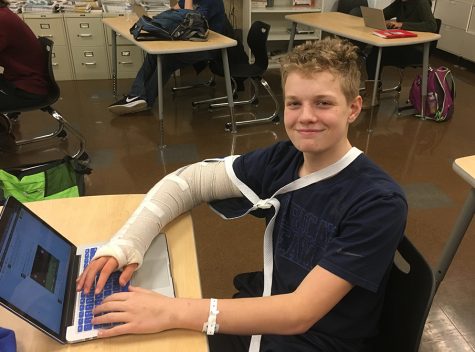
James Flowers has been writing for The Beachcomber since fall of 2016. He participates in football in the fall and wrestling in the winter. James enjoys...



